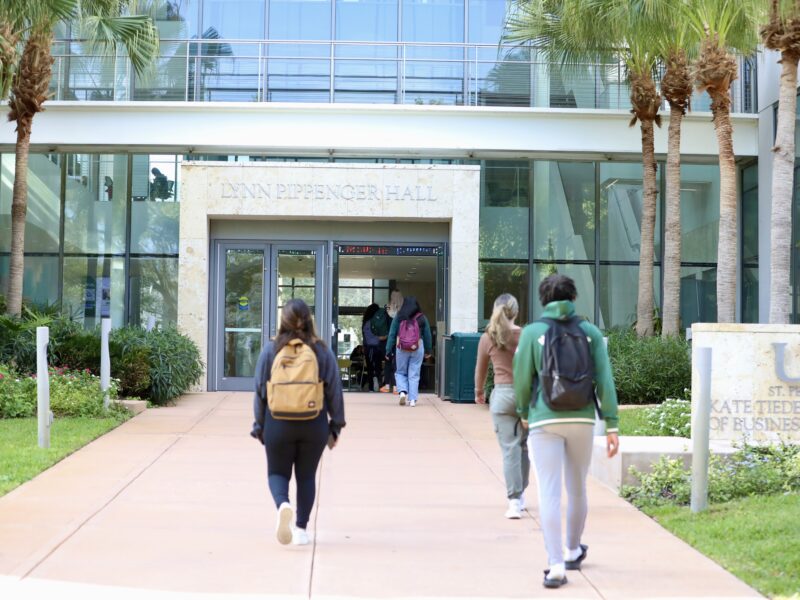The comments include “HORRIBLE teacher. Shouldn’t even call him a teacher because he doesn’t teach. Complete jerk” and “He’s definitely one of the best professors I’ve ever had.”
These two evaluations of the same USF St. Petersburg professor can be found on the website RateMyProfessors.com, an open source website where students can anonymously post evaluations of professors based on criteria ranging from the easiness of a class to “hotness.”
Many students swear by the advice and democratic empowerment the site provides. Many professors question the fairness of being thrust onto a cyber-evaluation reality show they never chose. Searching through the website’s database of USFSP reveals a listing of 504 professors, some with no ratings, and many with dozens.
While the site features a tab for professor rebuttals, most USFSP professors have not responded. A website component called Professors Strike Back features videotaped responses to student reviews. These are sandwiched between upbeat and electric guitar riffs and flashy graphics normally reserved for energy drink commercials.
The segments feature professors discussing issues such as why attendance is important and the importance of purchasing the textbook. French professor Martine Fernandes questions whether the students are prepared for more honest responses.
“How would they feel if we started writing comments about them? I’m not even sure if the school would allow it,” she said.
In fact, Fernandes would prefer to be excluded from the site.
“I wrote to them a couple of years ago and asked them to take me off and I never got a reply — I never heard anything,” she said. Calls and emails to Rate My Professors went unanswered.
Originally founded in 1999, Rate My Professors was purchased by Viacom in 2007 to be included in their mtvU network, MTV’s college channel. Chosen as one of Time Magazine’s 50 Best Websites of 2008, it boasts over 15 million student generated comments on 1.7 million professors in three countries.
The website’s terms of use details a strict code of conduct for students’ ratings and professor responses. Libelous, lewd and ethnically offensive remarks are among the conduct prohibited by the site.
One of the most consistent criticisms of the site is the lack of ability to verify the postings came from students who took the course they evaluate, or that the evaluations didn’t come from the professors themselves. Others observe the ratings can’t account for variables such as attendance and student effort.
But freshman and anthropology major John Foster said he takes such criticisms into account when using the site.
“It’s pretty accurate on most teachers,” Foster said “I understand that some of the reviews are going to be from angry students who don’t really understand whether the teacher is a good professor or not, but for the most part they get the gist of who the professor is.”
Professors report that students are becoming less hesitant to question them about information gleaned from Rate My Professors. Ester Quintana, a biological oceanographer and professor at USFSP, recalls two students approaching her at the beginning of a semester regarding postings they read about her on the site.
“I felt like I had to defend myself,” Quintana said. “I don’t want to get into the nitty-gritty of what went on with each student.”
As for the likelihood of responding to the comments directly on the site, Quintana immediately discounts that possibility.
“It would be unprofessional,” Quintana said.
Though it lacks the aggressive campaign of the National Survey of Student Engagement, the university still maintains a course evaluation procedure for students to complete near the end of each semester. This comparatively low-tech approach of filling out a brief, paper questionnaire leads some professors to feel the students’ voice is aptly represented.
French professor Frederic Leveziel dismisses the entire concept of the site as unnecessary.
“It’s American Idol syndrome,” he said. “Everyone has to say this is good and this is bad. Who’s to judge?”
Leveziel, like many other professors, takes exception with the “hotness” rating.
“Rating someone as hot or not hot brings down the whole thing,” he said. “It’s demeaning.”
It is a sentiment echoed by Fernandes, who added, with an amused smile, “And how would you feel if you found out you were not hot?”


